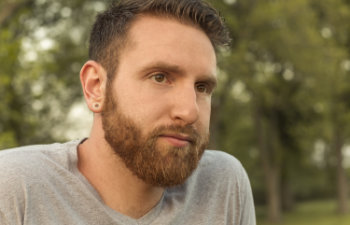
Hair transplant procedures are an effective solution for individuals seeking to restore their natural hairlines and regain their confidence. With the advanced hair transplant technology and methods available at Pasadena Hair Transplant, most patients with hair loss can be candidates for hair restoration procedures. However, not everyone is a suitable candidate for hair transplant surgery. Several factors and conditions can disqualify a person from undergoing a hair transplant procedure. Understanding these disqualifying criteria is essential to ensure safe and successful outcomes.
Insufficient Donor Hair
A hair transplant relies on the availability of healthy donor hair, typically from the back and sides of the scalp. If a person does not have an adequate supply of donor hair, the surgeon may not be able to perform a successful hair transplant. It is crucial that the donor hair is robust enough to withstand transplantation and regrow in the recipient area. Hair loss, scarring, and other factors can impact the availability of donor hair.
Medical Conditions:
Certain medical conditions may disqualify a person from undergoing a hair transplant. For example, individuals with uncontrolled diabetes or bleeding disorders may be at a higher risk of complications during surgery. Hypertension and cardiovascular conditions should also be carefully managed before considering a hair transplant.
Autoimmune Disorders
Autoimmune disorders, such as alopecia areata, can impact the success of a hair transplant. These conditions cause the immune system to attack hair follicles, making it challenging to ensure the survival and growth of transplanted hair. Patients with autoimmune disorders should consult their healthcare providers to determine whether a hair transplant is a suitable option.
Scalp Infections
Active scalp infections, such as folliculitis or tinea capitis, can disqualify a person from a hair transplant procedure. These infections can spread and lead to complications during and after surgery. Patients will need to resolve any scalp infections before undergoing a transplant.
Unrealistic Expectations
Unrealistic expectations regarding the outcome of the hair transplant can also be a disqualifying factor. Patients who expect a full head of hair after the procedure, even with limited donor hair, may not be suitable candidates. A thorough consultation with one of our hair restoration specialists can help set realistic expectations for the final result.
Underage Patients
Hair transplant surgeries are generally not recommended for individuals under the age of 25. This is because the pattern of hair loss may not have stabilized, and the long-term progression of hair loss is uncertain. Surgeons typically wait until the patient’s hair loss pattern is well-established before considering a transplant.
Smoking and Substance Abuse
Smoking and substance abuse can interfere with the healing process and increase the risk of complications. Patients who smoke or abuse substances may be asked to quit or address these habits before being considered for a hair transplant procedure.
Before pursuing a hair transplant, it is crucial to consult with a qualified and experienced surgeon. Our team at Pasadena Hair Transplant will assess your individual situation, including the quality of your donor hair, medical history, and other relevant factors, to determine whether you are a suitable candidate. Being well-informed and realistic about the potential outcomes is vital in making the right decision for your hair restoration journey. To find out if you are a good candidate for a hair transplant procedure, contact our Pasadena, CA, facility to schedule a consultation.
Posted on behalf of
10 Congress St., Suite #360
Pasadena, CA 91105
Phone: (626) 683-9080
Email: patients@pasadenasurgeons.com
Monday & Friday 9:00 AM – 7:00 PM
